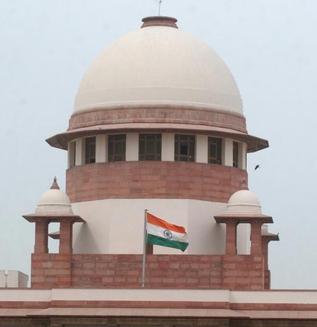TIA Special Correspondent /
 NEW DELHI: A senior Colleague of Prime Minister Narendra Modi and union minister for Law and Justice D V Sadananda Gowda Tuesday said that Uniform Civil Code is necessary for the country. He however said that a decision “cannot be done in a day or two. It will take its own time.”
NEW DELHI: A senior Colleague of Prime Minister Narendra Modi and union minister for Law and Justice D V Sadananda Gowda Tuesday said that Uniform Civil Code is necessary for the country. He however said that a decision “cannot be done in a day or two. It will take its own time.”
The minister said that he would consult the Prime Minister, his Cabinet colleagues and top law officers before government files its affidavit in the apex court.
His remarks came a day after the Supreme Court asked the Centre whether it was willing to bring in a common civil code.
Gowda said “wider consultations” will be held with various personal law boards and other stakeholders to evolve a consensus and the process may take “some time”.
“…Even the Preamble of our Constitution and Article 44 of the Constitution do say that there should be a uniform civil code. For the interest of national integration, certainly a common civil code is necessary. But it is a very sensitive issue. It needs very wider consultation. Even communities, even across the party line, even various organisations … it need to have a wider consultation,” Gowda said.
“But the concept of the Preamble of the Constitution and Article 44 and today in the national interest, certainly a step further need to be taken in this direction,” he said.
He said the high courts of Kerala and Karnataka have already given their judgment when they were dealing with some marriage laws saying a common code is the “need of the country.”
He said the contents of the proposed affidavit will be finalized after his consultations with the PM, his cabinet colleagues, the attorney general and the solicitor general.
Earlier on Monday the Supreme Court asked the Centre to take a quick decision on a uniform civil code to end  confusion over personal laws. A bench headed by Justice Vikramjit Sen told Solicitor General Ranjit Kumar that the if Centre wants to have a uniform civil code, it must take a decision soon. The apex court gave the government three weeks to come up with a proposal to amend the Christian Divorce Act.
confusion over personal laws. A bench headed by Justice Vikramjit Sen told Solicitor General Ranjit Kumar that the if Centre wants to have a uniform civil code, it must take a decision soon. The apex court gave the government three weeks to come up with a proposal to amend the Christian Divorce Act.
The Court was hearing a PIL filed by a Delhi based man, seeking waiver of two year mandatory separation period before a Christian couple can move court for divorce by mutual consent. The separation period is one year for other religions. India has separate sets of personal laws for each religion governing marriage, divorce, succession, adoption and maintenance.
